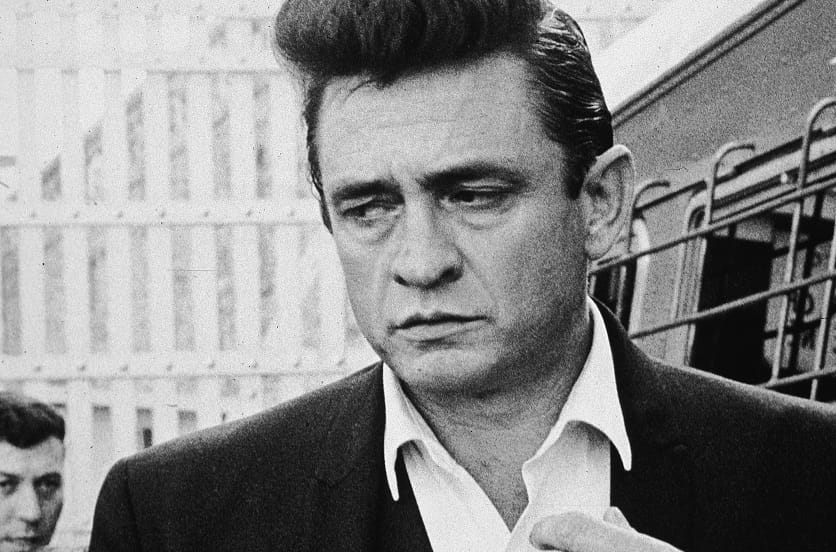https://www.youtube.com/watch?v=VoHc6KWjCBw
On January 13, 1968 Johnny Cash and wife June Carter took a stage inside Folsom Prison before an enthusiastic crowd of inmates. What followed was the source material for At Folsom Prison, which would become a huge hit upon release in May that year. To commemorate the concert’s 50th anniversary and what would have been Cash’s 86th birthday, it’s worth taking a look back at his most famous live performance.
Today, we’re remembering Johnny Cash on what would’ve been his 86th birthday. pic.twitter.com/Gkr8RmWSJ7
— TODAY (@TODAYshow) February 26, 2018
Cash’s career had faltered in the years prior to Folsom Prison. He’d run into some big snags, like an arrest at the US-Mexico border for having a great deal of speed—”pep pills” at the time—and other substances.
By the time he arrived to perform at Folsom, Cash had gained control over his substance abuse, lending the album a surprising undercurrent of positive renewal.
Asked in an interview originally given in 2008 where she thought Folsom Prison stood among other iconic ’60s albums, Rosanne Cash said her father’s record “tapped into the pure rebellion of the times and just that impulse to overthrow, to change things, to bump up against authority in all of its guises.”
Later in the same interview, Cash expanded on what she felt the album meant for her father in general:
So my intuitive take on the time around Folsom is paradoxical, given what the subject matter was: It was the moment that he came into the light. It’s a paradox, but it’s true. When I think about my dad’s life and I think about that moment, that’s when there’s a kind of force, when he embodied who he really was. And that’s light, no matter how much darkness is in it.
Johnny Cash was a crusader for prison reform, and he’d go on to give a concert at San Quentin as well.
At Folsom Prison was ranked at no. 88 on Rolling Stone’s 500 Greatest Albums list, yet another mark of its cultural impact.
Prison is the end of the line for many. But 50 years ago, it was a new start for Johnny Cash, and one of the reasons we still talk about him today. Listen to more of his timeless work below.
